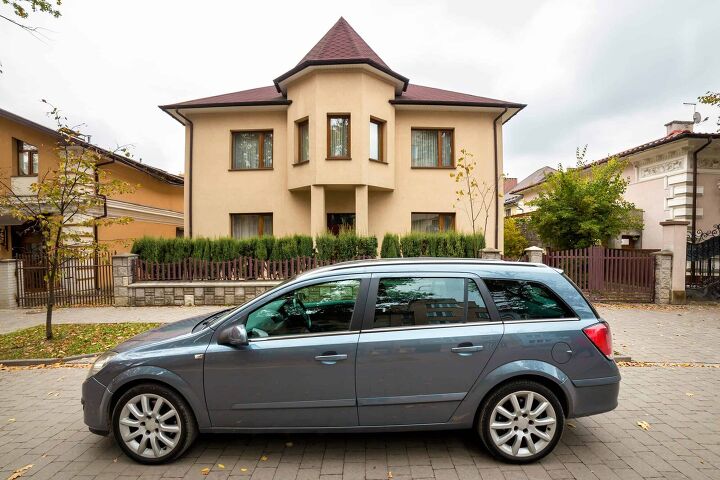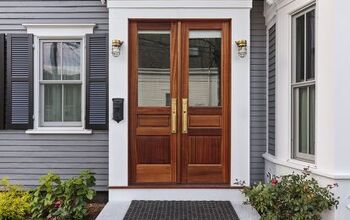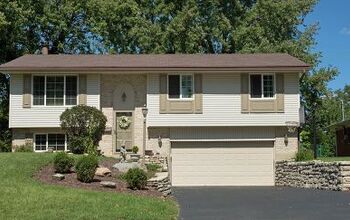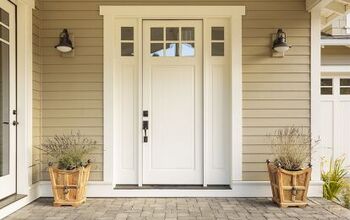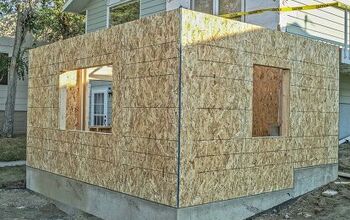How to Stop Neighbors From Parking Front in Front of Your Home (All Solutions)

If you want to park in front of your house or have your guests do the same, that’s your prerogative. More than likely, you keep the area in front of your house clear for mail delivery, garbage pick-up, and similar events. But what do you do when your neighbors keep parking in front of your house?
You can’t legally stop a neighbor from parking in front of your house. No one has the right to reserve a street parking space on a public road. Try to kindly ask your neighbor to stop parking in front of your house. Alternatively, check your local ordinance. In some townships, it is illegal to park a car longer than 72 hours in the same spot.
Can I Put A No Parking Sign In Front Of My House?
A simple “No Parking” sign should be enough to deter anyone from parking their car in the area where the sign is installed. In fact, many homeowners are buying professionally made signs or DIYing their own to get their message across. While this may be effective, it is not legal. In the United States, it is generally against the law to install your own “No Parking” sign.
While you may have authority over your own driveway, you do not have authority over the street in front of your home. No matter how much you’d like to claim that section of the street as your own parking spot, technically and legally, anyone is allowed to park there.
Only the township highway commissioner or the county sheriff is permitted to put up such signs. Virtually any sign that you place on the street, including a public right of way, is not allowed and can be considered unlawful. The sheriff is within their own right to have these signs removed without even giving you prior notice.
Put simply, since you have no rights over the street, you cannot install a “No Parking” sign out there. However, if you want to confirm, you can check with your local government. Like anything, rules vary based on where you live.
So, Is It Legal To Have Neighbors Parking In Front Of Your House?
If you live on a public street (which is the case in most situations), your neighbors can park where they please. That’s the bad news; the good news is, there are still things you can try to keep the front of your house free and clear.
Video: See How Help Me Howard Helped This Family’s Parking Situation
Tips To Stop Neighbors Parking In Front Of Your House
You would think that people would park in front of their own homes if they needed more space. It’s a matter of common courtesy. Unfortunately, not everyone has this sense of politeness, while others can be completely oblivious.
Talk To Your Neighbors
First, before you do anything else, you should talk to your neighbors. Find out why they keep parking in front of your house. If it is just for a short period of time, it could be because they have visiting guests.
Or perhaps they are working on their home and need to keep their driveway clear. For example, maybe they’re paving the driveway and can’t park there for a while. Sure, they could have talked to you ahead of time, but give them the benefit of the doubt.
In these types of scenarios, it pays to be a good neighbor. Let them park in front of your home until the temporary situation passes. This agreement keeps your relationship pleasant, and when you need similar assistance, they’ll be more likely to return the favor.
However, if the parking situation is ongoing, especially if their own home offers ample parking, it’s a whole other ballgame. You can ask your neighbors to please leave the space in front of your home free for you and your guests. But, your neighbor has the right to say no.
Leave Your Neighbor a Note
If you don’t want to speak to your neighbor directly and risk them confronting you, leave a note on their car. Explain to them that you would like to park in front of your own home. Make your message clear; be stern but respectful with your words.
Although you don’t have to provide a specific reason, I find that people sympathize with others who have a good reason. Let them know in your note if you have a bad back and you can’t walk far, or if you are taking care of an elderly person in your family and they can’t walk far.
Perhaps you work in an emergency field and must leave your home fast, so you need access to your parking spot. Whatever the reason may be, let your neighbor know and I’m sure they’ll be that much more inclined to cooperate and not park in front of your house.
Park In Front Of Your House First
You can park in front of your house. You could always park one of your vehicles in front of your home if it bothers you that much. If there’s already a car there, your neighbors can’t park in the space.
Of course, this can turn into a situation of “who gets there first.” You really need to tread lightly, so you don’t create an awkward relationship with your neighbors. After all, these are people you likely see every day.
Park In Front Of Your Neighbor’s House
You can park in front of your neighbor’s house. If your neighbor insists on parking in front of your home, you could technically park in front of his house. However, if you have room in your driveway or garage, that’s the best place for you to park.
Simply parking in front of your neighbor’s house out of spite doesn’t really resolve the situation. In fact, it could even escalate it and make it worse.
Block the Space (Using a Cone or a Trash Can)
It depends on whether you live on a private or public street. If you live on a private street, you can use a cone, trash can, or similar item to block the space. You could put a traffic cone or large garbage cans in front of your home to dissuade others from parking there.
Your neighbor is not likely to want to get out of his car to move the items. Therefore, he’ll start getting used to parking somewhere else and develop a new routine. Plus, you’ll subtly send the message that you’re not a pushover.
However, you can only block this are in this way if you live on a private street; if it’s public, you need to leave it clear for cars. Since it is a public space, the law states that anyone can park there, including your neighbors.
Call the Police
While this should be used as a last resort, you may just have to call the police. If a neighbor keeps parking in front of your house for weeks on end, you can notify the police and let them know that the vehicle hasn’t moved in a long time.
Let the police know if the vehicle seems suspicious and if you don’t recognize it. It’s a possibility the vehicle has been stolen or the vehicle belongs to someone who does not live adjacent to your house.
Also, in many cities, there’s a 72-hour parking rule. In my local township, the law states that “no person shall cause a motor vehicle to be parked longer than 72 hours in the same spot on any public roadway.”
In most cases, you’ll have to wait three days and then call the police to make a complaint. Then, you’ll have to wait another 72 hours before the vehicle gets a ticket. Finally, 24 hours after that the vehicle will be towed.
While going this route will create an uncomfortable situation with your neighbor, it could just be what you need to do to finally resolve the problem.
Apply for Resident-Only Parking
In some areas, street parking is zoned for residential-only parking. This means only the residents of your town can park on the street. If you live in such a city, you probably already know about this. However, it’s worth checking out with city hall.
If you’re able to somehow have a designated space, it’ll save you a lot of trouble. If you are disabled, you can apply for a handicap parking space. It is illegal for a non-permit-holder to park in a disabled space.
You’ll have to provide proof that you are a disabled driver and that you live at the address in question. Finally, you’ll have to prove that you don’t have an alternate parking space, such as a parking garage.
What if A Neighbor Parks In Front of My House In a Way That Blocks My Driveway?
You should first ask your neighbor to move his car. Let him or her know it is because you can’t get in and out of your driveway. If your neighbor refuses, call the police; tell them your neighbor has blocked your driveway and refuses to move.
Most cities have laws that state people cannot park in a way that blocks traffic. Technically, this can be interpreted in a variety of ways. But if your driveway is blocked, you certainly can’t drive in and out of it.
No matter what you decide to do to get your neighbors to change their ways, remember, they are your neighbors. This means you will see them every day. Be careful about how you decide to approach the situation. It’s always best to try and talk it out first before moving on to other methods. Hopefully, you can convince your neighbors to be civil and park in their own territory.
What If Your Neighbor Insists On Parking In Front Of Your Home?
If your neighbor insists on parking in front of your house despite all your efforts, you might be out of luck. You might feel like your neighbor is doing it on purpose, which can get you even more steamed. You could turn it into an ongoing feud, but ultimately, that can become a bigger problem.
If you notice the car has been there for a long time or suspect it might be abandoned, then call the police. In this case, you have a right to pursue the issue and get the car removed if it’s determined it does not belong to anyone.
If it really stresses you out, keep your car parked there, but beware of the consequences of parking in the street. If your vehicle is on the road, it is more prone to getting dinged and side-wiped. You have to decide which is more important to you.
What If My Neighbors’ Friends Keep Parking In Front Of My House?
If it isn’t your neighbor but their frequent guests always parking in front of your house, try some of the same above-mentioned tips. Or, you could apply for residents-only parking or consult with other neighbors that night be having the same problem. If enough people are bothered by it, and the neighbor in question won’t cooperate, you could all take your issue to city hall.
What Can I Do If Neighbors Park In My Driveway?
If your neighbor parks in your driveway, this is pretty bold. Your driveway is your private property. Ask your neighbor to move, and if he continues to park there, step up your efforts.
Leave a politely worded note on his windshield. Let them know that you plan to have the vehicle towed if he keeps parking it in your driveway. If your neighbor doesn’t budge, call the tow company.
You could also involve the authorities and report the situation. Just keep in mind that whatever action you take will cause a change in your relationship with your neighbor.
So, What’s the Solution?
We already learned that there’s not one single way to stop your neighbor from parking in front of your home. But, talking to them politely is probably the easiest way to resolve it. While they are not doing anything wrong as far as the law goes, if they refuse to work with you, you can try to put cones in your space or call the police to report their car as suspicious.
Alternatively, leave them a note and let them know why you really need to park in front of your own house. Most people are reasonable and will sympathize with your reasoning. All you’re doing is really asking for a favor. If your relationship with your neighbor is good, this shouldn’t be a problem.
However, if you can’t resolve the parking situation amicably, check your local laws and ordinances. The 72-hour rule doesn’t allow any car to be parked in the same spot for three days straight. This means you can notify the police and even have the car eventually towed.
But, this law doesn’t apply in every city or municipality so make sure to check it out. Finally, check all other legal options, such as applying for a special parking permit if you are disabled or assisting a disabled person.
Related Guides

Stacy Randall is a wife, mother, and freelance writer from NOLA that has always had a love for DIY projects, home organization, and making spaces beautiful. Together with her husband, she has been spending the last several years lovingly renovating her grandparent's former home, making it their own and learning a lot about life along the way.
More by Stacy Randall



